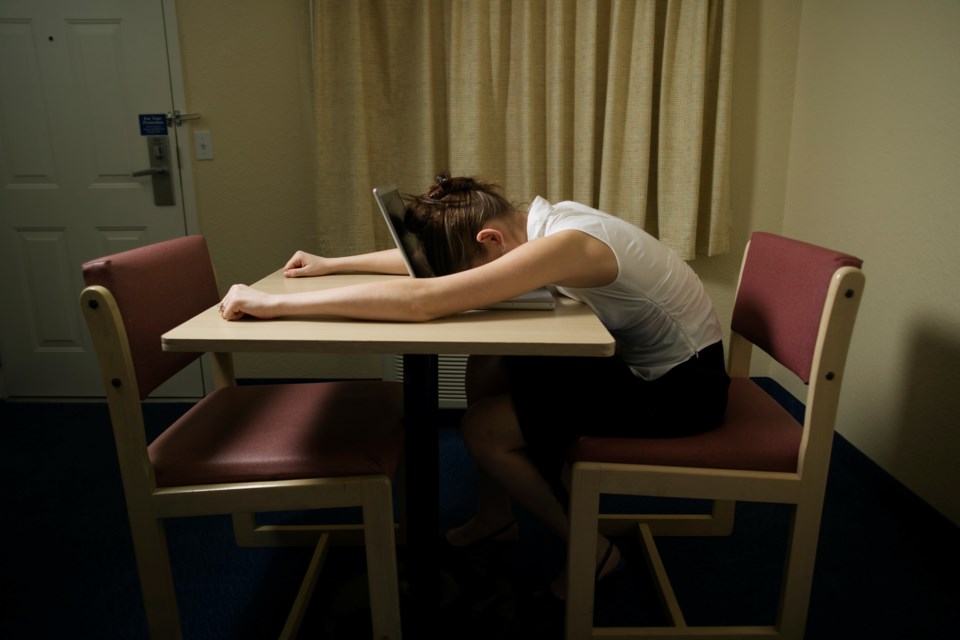Dear Lisi: An old high school friend of my brother’s just died. He wasn’t even 60. He played hard and partied harder back in the day. I’m five years younger, which made a huge difference at the time. I was in elementary and middle school when they were in high school.
My brother tried to shield me from all of the shenanigans, but I’d secretly watch them smoking, drinking and kissing girls. They stayed friends throughout university, but this guy never stopped his high-living ways.
My brother eventually had a serious girlfriend, got married and had children. His partying days stopped of his own choice. He was over it and wanted to be a family man. This guy never stopped. Though he did marry, it ended in divorce, and parenting wasn’t top of his priority list.
I can see my brother is torn up about the loss. I think he feels guilty for not having tried to help his friend calm down all these years, and knows that’s what killed him.
I don’t know how to help my brother.
Sad sibling
Sad as it is, it is absolutely NOT your brother’s fault that his old friend died. Your brother was not his keeper. We are only responsible for ourselves and our children, up to a point. We can choose to take care of others — spouse, parents, other family members — but once a person is an adult, their lifestyle choices are their own.
Remind your brother that he made good life choices.
Dear Lisi: Twice recently, I have been in lineups where someone behind me has loudly continued a conversation (both happened to be business related) with some type of wireless headphone. I’m not opposed to people working on the go, but it’s a violation of my personal space. I’m not part of their business or their office. I have no interest in hearing about the market value of a product, or how HR is screwing up everyone’s vacation.
Why do people think they have the right to live their life out loud when in crowded places? And do I have the right to ask them to be quiet?
Affronted
A-That is the way of the world these days. And I agree, it’s rude, thoughtless, self-centred and unnecessary. But I don’t think you have the right to ask them to be quiet. And I don’t actually think they would comply. Most probably, they would continue even louder because they would then feel affronted, as you signed off.
But no one is stopping you from giving them the side eye.
FEEDBACK Regarding the child feeling overwhelmed by LGBTQ+ discussions (Feb. 11):
Reader – “As a teacher, I was disappointed by the response you gave to a young person questioning why LGBTQIA+ issues are discussed so often in schools. LGBTQIA+ youth still experience disproportionate rates of bullying and violence, at school and in their communities. They are at higher risk for homelessness, self-harm, and suicide.
“While I’m glad to hear this particular kid ‘gets it,’ that doesn’t negate the need for ongoing learning about LGBTQIA+ issues in Canada, along with a deeper understanding of the legacy of violence and oppression this group has and continues to experience.
“Your ‘live and let live’ response was flippant and a missed opportunity to educate this young person about the importance of empathy and learning about other perspectives. I commend the kid’s teachers for doing this work.”
Lisi - My understanding from the original letter was not that this child didn’t have empathy, but rather, well understood what was going on at their age-appropriate level. I got the distinct feeling that this child felt that talking about it continuously was actually making the children who identified as such feel more targeted.
FEEDBACK Regarding the mother concerned that her son’s first boyfriend was controlling (Jan 20):
Reader – “I recommend an excellent book, ‘In Control’ by Jane Monckton Smith. It outlines patterns of damaging, controlling relationships.
“This is the son’s first boyfriend, but I am curious to know if the boyfriend has a dating history, and if so, if there has been controlling behaviour in the past. This would be a red flag.
“I would have suggested to Strange Vibes that she encourage her son to pursue more activities to foster his growth in his new ‘out’ status. For example, is there an LGBT group at his high school? Her son needs to learn about other models for romantic relationships. And if the boyfriend does not support these other activities, this confirms he is controlling and bad news.”
Ellie Tesher and Lisi Tesher are advice columnists for the Star and based in Toronto. Send your relationship questions via email: [email protected] or [email protected]



